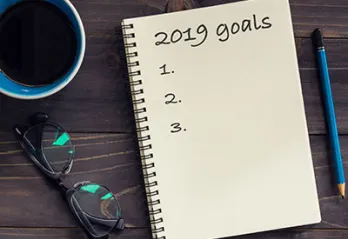5 Steps to Setting “Smart” Goals

Setting goals is a fundamental step toward personal growth and achievement. The SMART framework - Specific, Measurable, Achievable, Relevant, and Time-bound - has long been a popular method for goal setting. However, recent insights suggest that while SMART goals provide structure, they may not fully capture the complexities of personal development and motivation.
1. Specific
Clearly define your goal to understand precisely what you aim to achieve. A specific goal addresses the who, what, where, when, and why. For example, instead of setting a goal to "exercise more," specify, "Attend a 45-minute mat Pilates class at the YMCA every Monday, Wednesday, and Friday at 7 AM to improve flexibility and reduce stress."
2. Measurable
Establish criteria to track your progress and determine when you've accomplished your goal. Measurable goals provide tangible evidence of completion. For instance, "I will run on the treadmill at the YMCA for 20 minutes three times a week, increasing my time by 5 minutes each week until I can run for 45 minutes."
3. Achievable
Set goals that are realistic and attainable, considering your current resources and constraints. An achievable goal should stretch your abilities but remain possible. For example, "I will improve my endurance by signing up for six weeks of YMCA personal training, starting with 30-minute sessions and building up to an hour by the end of the course."
4. Relevant
Ensure your goal aligns with your broader objectives and values. A relevant goal matters to you and fits within your long-term plans. For instance, "I want to feel more energized and active, so I’ll enroll in the YMCA’s yoga class twice a week to improve flexibility and reduce stress."
5. Time-bound
Set a clear deadline to create a sense of urgency and motivate timely action. Time-bound goals help prevent everyday tasks from taking priority over long-term aspirations. For example, "I will attend a YMCA group strength training class twice a week and aim to increase my deadlift by 20 pounds within the next eight weeks."
Beyond SMART Goals: Staying Flexible and Motivated
While SMART goals are effective, staying motivated and flexible is equally important. Life can change, and it’s okay to adjust your goals as needed. Incorporate rewards or track your achievements to stay inspired. For example, treat yourself to a relaxing yoga session at the YMCA after meeting a fitness milestone.
How the YMCA Can Help You Achieve Your Goals
The YMCA of Northern Colorado offers a variety of programs and resources to support your journey:
- Smart Start: This free program offers three one-on-one sessions with a Y wellness coach.
- Fitness Classes: From yoga to HIIT, find classes that fit your schedule and interests.
- Youth Programs: Set goals for your family, like joining a swim starters class with your little one.
- Personal Training: Get personalized guidance to keep you on track.
- Community Events: Join group challenges or charity runs to stay engaged and motivated.
Conclusion
Setting goals using the SMART framework can provide clarity and direction. However, it's important to balance this structure with personal relevance and adaptability to maintain motivation and achieve meaningful outcomes. By thoughtfully crafting your goals and remaining open to adjustments, you can create a more fulfilling and effective path toward personal development.
For more resources on goal setting and personal development, visit the YMCA of Northern Colorado & Southern Wyoming's programs and classes designed to support your journey.

